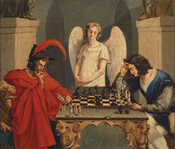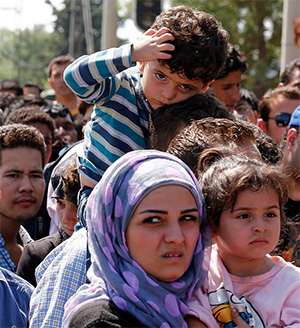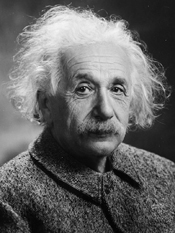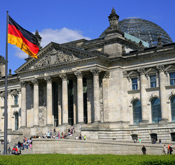Courses every undergraduate should take

Faust und Mephisto beim Schachspiel, Öl auf Leinwand
Author: Anonymous
German 232
THE THEME OF FAUST THROUGH THE AGES
The medieval tale of Dr. Faustus who made a pact with the devil (exchanging his soul for unlimited knowledge and worldly pleasure) does not seem to have lost any of its appeal nowadays. This course explores the history of this contract and raises the question what has kept the theme of Faust alive throughout the ages.

Flüchtlinge auf einer beschwerlichen Reise
German 248
LEARNING DIVERSITY: GERMANY AND GLOBAL MIGRATION
This course provides a perspective on immigrants and immigration by examining the current situation in Europe, German migration history from the 19th century to the 1970s, and a comparative look at German approaches to immigration with those of the rest of the world.

Albert Einstein, 1947
Photograph by Oren Jack Turner, Princeton, N.J
Humanities 256
EINSTEIN AND THE 20TH CENTURY
Organized chronologically, this course moves from Einstein’s years as a high-school student in Germany to his famous sojourn in Switzerland, through his brief professorship in Prague, where he met Franz Kafka, to his years in Berlin, where he achieved world-wide fame and witnessed the beginnings of the anti-Semitic terror that would ultimately force him to leave Europe and settle in the United States. Alternating between expositions of Einstein’s science and descriptions of the cultural and political worlds in which he found himself, the course continually asks students to reflect on the tense relation between science and the social world.

Reichstag, 2007
Photograph by Cezary Piwowarski
German 230
BERLIN AND THE CULTURE OF DEMOCRACY
This course focuses on the history and culture of Berlin from 1900 to the present. It highlights the debates about democracy that emerged as a result of the Weimar constitution, the vibrant and contentious culture of the 1920s and early 1930s, the Nazi period and the destruction of the city in 1945, the divided city during the Cold War with the emergence of the Berlin Wall, and the events surrounding the collapse of the Wall and the resulting—and much disputed—multicultural metropolis of today.
